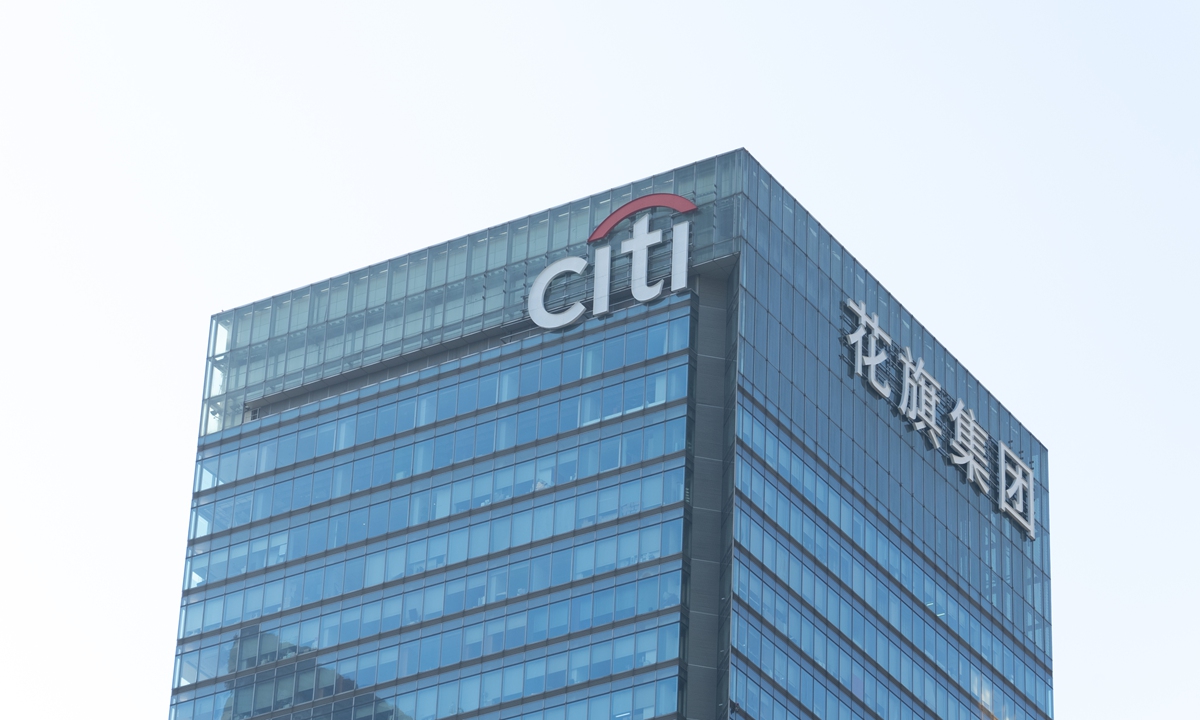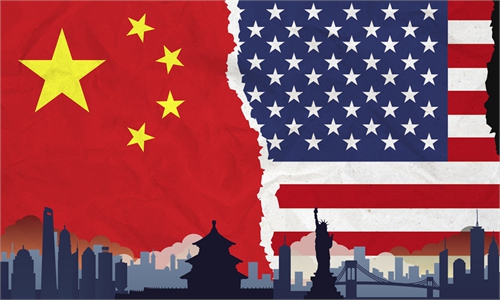Citigroup’s China expansion plan reportedly ‘hits a roadblock’ with US regulators; Citi China declines to comment

Citi Group Photo: VCG
US banking institution Citigroup has been working to set up a standalone securities firm in China, but it "has hit a roadblock with US regulators after the Federal Reserve imposed a penalty on the bank for its data management and risk controls," Bloomberg reported on Monday, citing people familiar with the matter. The Global Times reached out to Citi China, but it declined to comment.Specifically, Citi hasn't yet received a clearance letter from the US Federal Reserve verifying its regulatory standing, as required by Chinese authorities, the report said.
Under Chinese law, foreign banks must meet several conditions to establish onshore operations, including having no major regulatory fines in the past three years. However, Citi was hit with a combined $136 million in fines in July and was instructed to resolve its data management problems at home, according to the Bloomberg report.
Notably, the report said that officials at the China Securities Regulatory Commission have reiterated their support for the bank's expansion, while the bank also said that it has no plans to pull its application, though the report added that the situation is fluid and could change.
In response to the Global Times' inquiry over the report on Monday, Citi China declined to comment, while referring to a pair of recent media interviews with Lu Xuan, president of Citi China.
In an interview with the Securities Times published on Friday, Lu said that Citi will continue to embrace opportunities from China's financial opening-up and was actively applying for securities and futures licenses. "In the long run, I believe China will become more important in Citi's global network," Lu said in the interview.
The remarks underscore Citi and other foreign financial institutions' great interests in the Chinese financial market amid China's continuous opening-up. After China lifted foreign ownership limits on securities and fund management firms in 2020, Citi submitted an application for a securities license for underwriting yuan-denominated shares and to conduct trading for clients, among other businesses. Two other US investment banks, JPMorgan and Goldman Sachs have been approved for fully owned securities firms in China.
Experts said that China's continuous opening-up, including in the financial industry, has and will continue to provide great opportunities for foreign businesses, including those from the US.
"China's commitment to opening-up is very clear and firm. Our market opening-up measures, coupled with the vast size of the Chinese market, have attracted the interests of many foreign investors," Zhou Mi, a senior research fellow at the Chinese Academy of International Trade and Economic Cooperation, told the Global Times on Monday, noting that China's opening-up has been expanded to more areas.
In addition to opening-up in the financial industry, China has also taken a slew of opening-up measures in other industries. In September, China's State Council issued a guideline on high-level opening-up in the services sector, containing 20 specific measures including improving the negative list mechanism for cross-border trade in services.
Meanwhile, China and the US have also set up a bilateral Financial Working Group to discuss financial issues of mutual concern. In August, Chinese and US officials held the fifth meeting of the Financial Working Group in Shanghai, where the two sides signed a document on enhancing cooperation on financial stability.
US barriers
However, in stark contrast to China's continuous opening-up, the US has also been continuously intensifying its crackdown campaign against China by imposing a series of restrictions on normal business cooperation. In August, 2023, the US moved to ban new US investments in China's "sensitive high-tech industries."
By setting up more barriers, the US will not only undermine bilateral cooperation but also deprive its companies of opportunities in the vast Chinese market, Chinese experts said.
"It is clear that the US is continuously tightening restrictions on bilateral investment," Xin Qiang, a scholar and expert on US studies at Fudan University, told the Global Times on Monday.
Xin said that while it remains unclear whether the US regulators' reported move on Citi is a targeted move against the US bank's China operation, it is clear that relevant US regulatory actions have caused uncertainty surrounding specific business operations, which is concerning.




